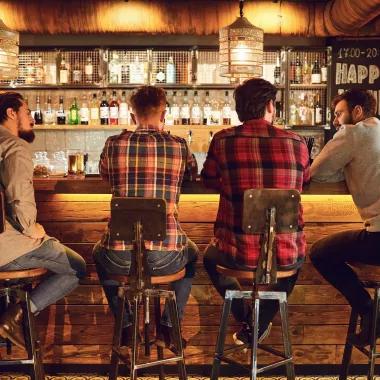End of relationship
The information below explains how the Pubs Code applies at the end of the relationship with your pub company

Assignment of your tenancy to someone else
Assignment
Assignment is the transfer of an agreement by an existing tenant to a new tenant, usually when a pub is sold.
Under the Pubs Code, references to a “tenancy” include a lease agreement of any length, and references to a “tenant” include a lessee. The terms of the agreement may deal with the circumstances in which an assignment can take place. Not all agreements can be assigned.
Before entering into a new tied pub agreement, the pub company has a duty under the Pubs Code to inform the prospective tenant whether the agreement can be assigned, and the procedures for assignment that must be followed.
Thinking of assigning or taking an assignment?
If the terms of the agreement permit it to be assigned, and the pub company is notified by the tenant of an intention to assign, it has a duty to give certain information to both the tenant and the proposed assignee. Where the pub company’s consent to the assignment is required, it must also be satisfied the proposed assignee has received certain further information and advice before it can give that consent.
The PCA's factsheet for tenants and prospective assignees explains all these duties.
If your pub is sold
If your pub company is not covered by the Pubs Code and sells your pub to a pub company which has 500 or more tied pubs, you will automatically be protected by rights under the Pubs Code.
Where you are protected by the Pubs Code, you have rights where your pub company knows that the freeholder or superior landlord is marketing your pub for sale. It must give you certain information about the sale. You can find detail of this duty in regulation 49 of the Pubs Code.
Extended protection
If your tenancy is with a regulated pub-owning business and is sold to a pub company which has 500 tied pubs or more, your Pubs Code rights do not change.
If your pub is sold to a pub company with fewer than 500 tied pubs, you will still have certain Pubs Code rights. These rights last until the end of your next rent assessment, or if sooner, when the tenancy ends. This is called extended protection under the Pubs Code.
Further information about extended protection can be found in the PCA's factsheet.
The MRO process and sale of your pub
If a pub company sells its interest in your tied pub to a landlord with fewer than 500 tied pubs, you cannot continue the MRO process once the sale takes place.
You can read more about the MRO process.
Dilapidations
Dilapidations
Dilapidations are works which are needed to bring your pub into the standard of repair required by your agreement. They are usually your responsibility to carry out at the end of your agreement or on assignment.
Who is responsible for dilapidations?
Before you prepare a sustainable business plan and sign your agreement, your pub company must provide you with details of the procedure for assessing dilapidations at the end of your agreement and for making good. The pub company should set out their responsibilities under these procedures, as well as yours, and the process for resolving a dispute.
If you are responsible for any dilapidations, the pub company must also tell you when any surveys will be carried out to work out the extent of the dilapidations.
When should I think about dilapidations?
The pub company must carry out any surveys to review any dilapidations at the premises in line with your agreement and at least six months before the end of your agreement.
The pub company must give you reasonable notice before carrying out a dilapidations survey (unless there is an emergency).
If the pub company asks you to fix any dilapidations before assigning your tenancy, it must tell you what must be fixed as soon as possible after you tell the pub company about your intention to assign the tenancy.
Further information regarding repairs and dilapidations can be found in our factsheet.
The issue of pub dilapidations and in particular the disputes that can sometimes arise between tenants and pub companies in relation to this,.
To seek to ensure that dilapidations are better managed and communicated, the British Beer and Pub Association (BBPA) has published a best practice guide to the management of repairs and dilapidations in collaboration with the British Institute of Innkeeping and UKHospitality.
What can I do if there is a dispute about repairs and dilapidations?
Any discussions about repairs with your Business Development Manager or anyone else representing your pub company, must be recorded in writing and sent to you within 14 days. You then have seven days to challenge those notes if you do disagree with any aspect of the record.
Your pub company must have a process for dealing with disputes about repairs to the premises, including dilapidations at the end of the agreement, and must tell you what this process is before you enter into the agreement.
If you cannot resolve a dispute about the extent of repairs or dilapidations under your agreement, or responsibility for them, this cannot be resolved under the Pubs Code and you should take independent legal advice on your options, which may include taking the matter to court.
Disputes about compliance with any of the Pubs Code duties may be referred to arbitration (although time limits apply). Find out more about Pubs Code duties in relation to repairs and dilapidations in our factsheet.
It is the responsibility of your pub company’s Code Compliance Officer (CCO) to verify compliance with the Pubs Code and you can contact them with any query about the Pubs Code. Find out more about the CCO role.
Find further information which must be given to new tenants on the Thinking of taking on a tied pub page.



